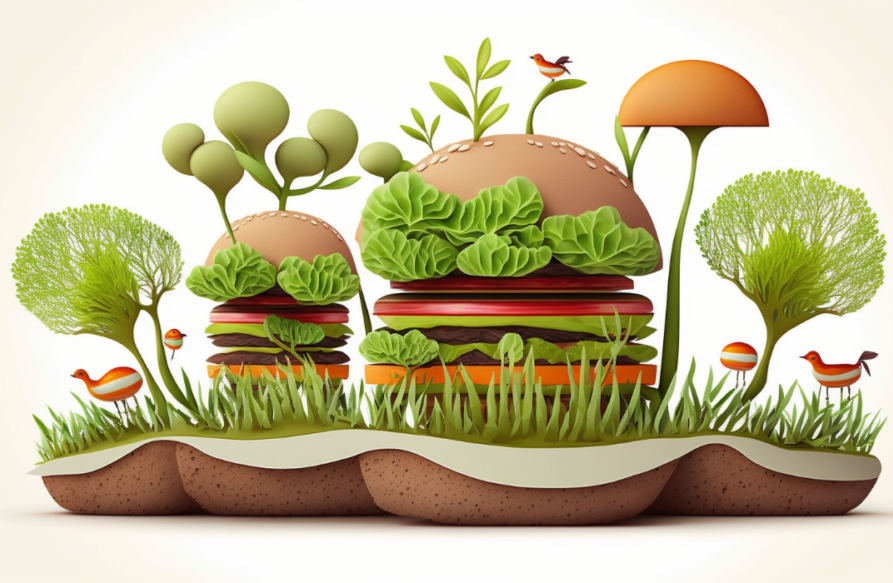Solution Initiatives for the development of solutions relevant for the future
In the past years, SDSN Switzerland has supported several Solution Intiatives. These are projects in which SDSN member and partner organisations jointly developed effective systemic approaches to achieving the SDGs.
Transformative Urban Food Projects: What works where and how? (TASTE)
The Solution Initiative “Transformative Urban Food Projects: What works where and how? (TASTE)“ aims to make visible local initiatives and projects transforming the food system in Switzerland. To this end, initiatives in selected small Swiss cities are recorded in a database, and a small selection of initiatives is analyzed with regard to their transformative potential. Two particularly interesting initiatives will be documented on video, and the films will be widely distributed via social media. The project by the University of Basel and Agroscope will inform and inspire other actors to design and implement sustainable food projects in small city contexts.
In autumn 2023, Sentience, collaboratio helvetica and the Bern University of Applied Sciences were convening a series of one-day workshops with around 20 experts from science, politics, economics, agriculture, processing, and civil society. They have looked in depth at the question of how sustainability can be promoted in the production and consumption of protein-based food in Switzerland. A comprehensive report can be found on the Sentience website.


Switzerland is severely affected by species extinction. The experimental educational project Campus4Biodiversity aimed to raise awareness of the problem among future actors in the construction industry and provide them with knowledge, tools, and networks so that they can work to increase biodiversity in urban areas. The project, which was carried out by the Bern University of Applied Science (BFH) with support from scaling4good, and SDSN Switzerland, resulted in a teaching and scaling concept.
Curriculum Change @ Business Education
The integration of sustainability knowledge and skills into business education in Switzerland needs to be strengthened. It is time to prepare students for current and future social and economic challenges of sustainability. The initiative of the University of St. Gallen, the University of Lausanne, the Bern University of Applied Sciences and WWF Switzerland, therefore aims to build a network of committed business and management experts, to create a freely accessible platform with learning materials, best practices and other diverse tools. Training workshops for lecturers are also part of the initiative.
Impact Hub Geneva’s Intrapreneurship Academy taps into participants’ untapped potential, cultivates resilience and fosters creativity in a changing world. This professional development program is a hands-on process for becoming agile and resourceful. It aims to prepare leaders to shape tomorrow’s economy. They learn to see problems as opportunities for targeted innovation and to prepare their organizations for the future through improved team dynamics and autonomy. In the program, they work on real-world solutions. It builds their confidence and resilience, and they build meaningful connections and cross-sector collaboration within a network of leading organizations.
Pilot projects for revising curricula in sustainability-oriented management and business degree programs
Every eighth Swiss student chooses to study business or economics. These students often take on influential leadership positions in companies, NGOs or the public sector later on. Sustainability-oriented values and methods are still poorly integrated into many management and business courses, however. Integration is essential, though, because managers’ decisions have a major impact on natural resources. The initiative of WWF Switzerland, University of St. Gallen, and other partners promotes relevant competencies such as transdisciplinary, critical, and integrative thinking and action in pilot projects. Additionally, a network of university business stakeholders is being established to exchange experiences and learn from each other.
Sustainability Week for Businesses
The Swiss Association of Student Organisations for Sustainability (VSN) supports and accompanies companies in organising an individual sustainability week tailored to the needs of the company and its employees. The aim is to motivate and empower employees to integrate the SDGs into the corporate culture. Personal responsibility and employee engagement are specifically promoted, which not only strengthens a sustainable corporate culture but also creates a working environment oriented to the future. In this way, companies actively contribute to solving environmental, social and economic challenges and support sustainable innovation for a prosperous and resilient Swiss economy.

Two interesting products are the result of the Solution Initiative “Biblio 2030” by Bibliosuisse. In the online game “Lilu’s Library” you can explore a library at night and discover how you can make your library even more sustainable. The guidebook «Sustainability in libraries» (available in German and French) introduces readers to successful sustainability projects that have already been implemented in libraries.
How can we work together as key actors of the Arc Lémanique to implement Circular Economy in the region? In Switzerland, the economic system has not yet achieved circularity. Moving beyond waste therefore requires a substantial transformation of our consumption habits and production methods. The Circular Resources Lab is a 4-month collective innovation process in the Lausanne area, following the social laboratory methodology. The expected output is a portfolio of 4 to 5 viable solutions that enable circular resources flows.


